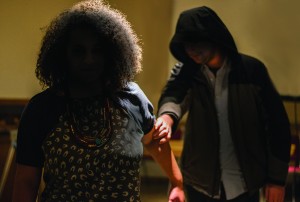 Forcible sex offenses reported on campus at NMU have dropped in the past three years, but rates remain relatively high in comparison to other colleges in the state.
Forcible sex offenses reported on campus at NMU have dropped in the past three years, but rates remain relatively high in comparison to other colleges in the state.
Lt. Don Peterman, a crime prevention specialist at NMU, attributes the high numbers of sexual assaults to the measures the university takes to educate students on the issue, which he said leads to more survivors stepping forward to report assaults.
“If you start educating people and you start enforcing it more, with some of that stuff, then your numbers are going to go up,” Peterman said. “It’s not that people got worse, it’s just what is happening now is people are making a change, like more reporting, and then the numbers can go up. They can spike sometimes with the sexual assaults when people understand they can report the incidents.”
October marks the release of campus crime statistics from the previous year at universities across the nation, as required by the Campus Sexual Violence Elimination Act (SaVE). NMU reported 13 sexual offenses on campus in 2011. Last year, the number dropped to seven.
In the past three years, there have been 29 forcible sex offenses on NMU’s campus. In comparison, 22 total forcible sex offenses were reported on Western Michigan University’s campus in the past three years, 15 total reported at Grand Valley State University in the same time period and 14 total reported at Ferris State University in the past three years, according to government data.
“Sometimes the numbers go up,” Peterman said. “Hopefully as you do more programming, you educate people.”
Some experts suspect that more sexual assaults are being reported nationwide and not that there is a rise in attacks.
In the event a sexual assault is reported to NMU’s Public Safety, investigator Vic LaDuke said there are a number of steps that could be taken based on specifications from the sexual assault survivor. This includes the option to report the case directly to a prosecuting attorney.
“In short, we make sure the victim has basic information about what can happen, what the investigation entails, the need for a medical exam at the hospital and what that’s about,” LaDuke said. “It’s important they at least go to the hospital so that the information is there if they change their mind [about prosecuting] in the future.”
In any case, LaDuke said the university police deal with each sexual assault report in a serious manner.
“We try to be very proactive and we encourage students to report all crimes,” LaDuke said. “We fully disclose all of our crime statistics. We fully investigate.”
Health promotion specialist Lenny Shible said the Health Promotions Office (HPO) makes visits to around 50 classes each year to provide information about the do’s and don’ts in regards to sexual assault cases and how friends can help. These visits have been offered for 15 years now.
“You should never tell a survivor what to do, because during a sexual assault, they’ve been told what to do and that’s not a comfortable feeling in any situation,” Shible said. “You don’t give them orders.”
Shible said friends of the rape survivors need to give back the power and control the survivor lost in the assault by asking them questions and giving them the opportunity to make their own decisions instead of telling them what to do in response to the assault.
HPO representatives also talk to classes about the resources available and about what to do and what not to do in the event of a sexual assault report.
Shible said there are three primary resources that sexual assault survivors would benefit from and are offered as options to survivors, including medical assistance, law enforcement and counseling, which Shible said is provided completely free and confidential at NMU.
Peterman said the new Campus SaVE Act is a step toward reducing sexual assaults on campus, but it is not an easy task.
“You’re not going to make that change that easy, you’re never going to get rid of this problem,” Peterman said. “We just hope to make some positive changes in at least one person, and then you’ve done something, because it’s hard.”
Peterman works with programs on campus such as Rape Aggression and Defense, Women for Women, UN100 First Year Experience classes, Student Leader Fellowship skill builders and athlete orientations, as well as with high school students and the women’s center to discuss the importance of reporting and preventing sexual assaults.
Peterman said the negative behaviors that lead to sexual assaults start early on.
“We need to get in the high schools and we need to get into the junior highs,” Peterman said. “That’s where we’ve got to start making the change. It’s got to come from home, too. It’s also got to come from the schools.”
























